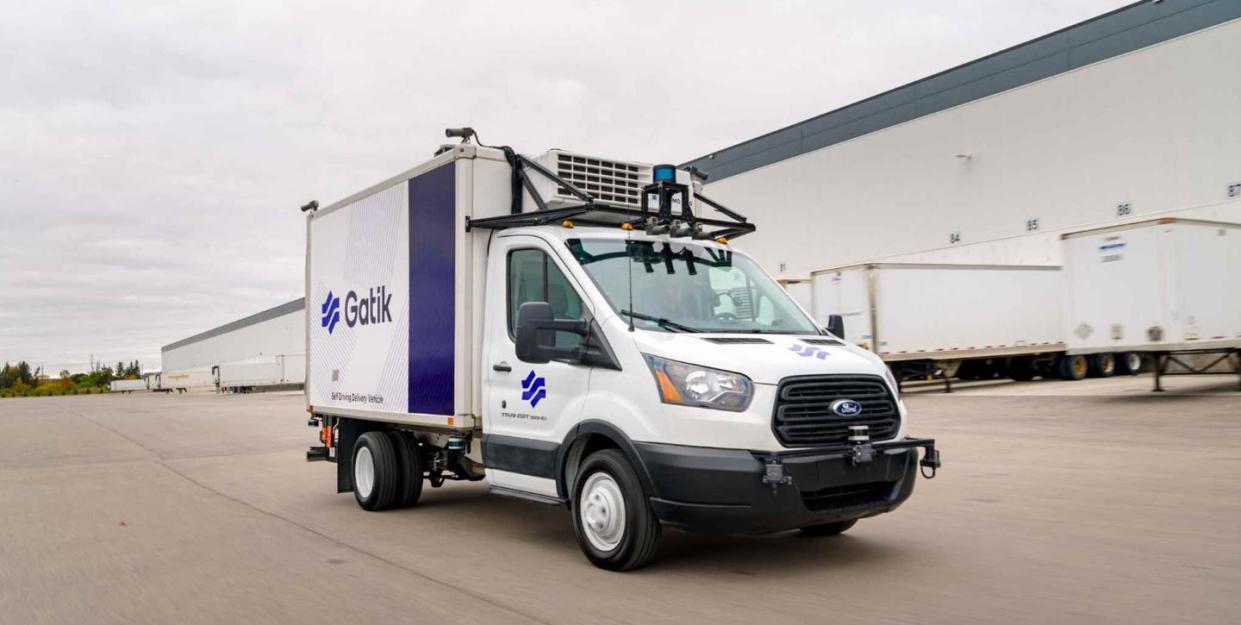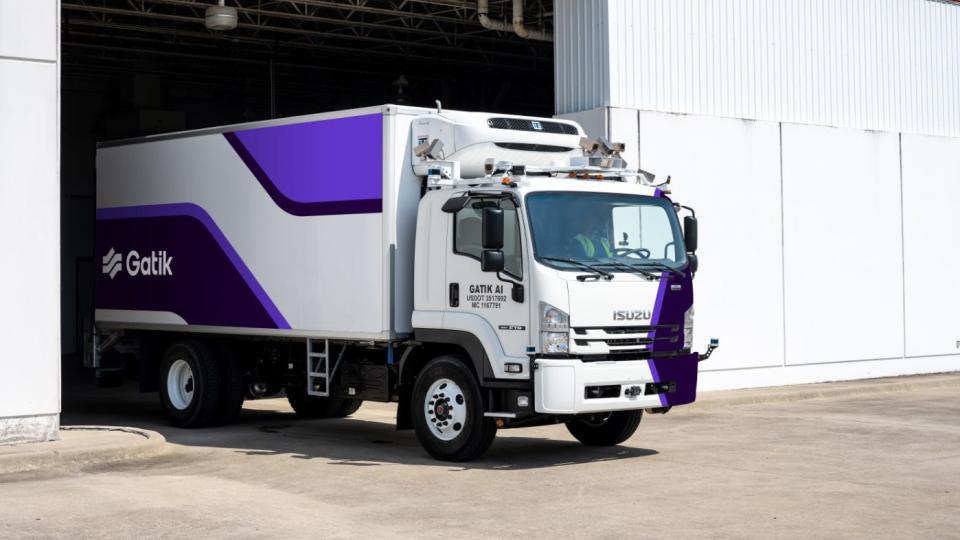Gatik Brings Autonomous Delivery Trucks to Kansas

Autonomous tech developer Gatik has expanded operations to Kansas, after lobbying for passage of law allowing autonomous vehicles on state roads.
Gatik had earlier launched autonomous truck operations without a safety driver in Arkansas, with trucks performing routes between a Walmart distribution center and a store.
Gatik's Level 4 autonomous tech is aimed at commercial customers with vehicles that perform middle-mile routes, perfect for shipping between stores and warehouses.
Autonomous developer Gatik will begin self-driving truck operations in Kansas following the passage of a law permitting fully autonomous trucks on the state's roads. Gatik has been testing its autonomous trucks, considered SAE Level 4, in a partnership with Walmart in nearby Arkansas, aimed at performing middle-mile routes from a fulfillment center and a neighborhood store. The company's planned entry into Kansas will expand its footprint and reach, which has been relatively small-scale thus far.
That's soon to change in the coming years, as autonomous developers hope.
Gatik revealed that it worked with the Kansas governor's office, the Kansas Department of Transportation, as well as state House and Senate leaders in addition to other stakeholders to propose the legislation, which was signed into law by Governor Laura Kelly, effectively permitting driverless trucks to operate within the state.
Prior, the autonomous developer had begun using trucks without a safety driver after 18 months of safe operations in Arkansas, becoming the first company to obtain a permit from the state of Arkansas to deploy autonomous trucks without a human in the cabin.
"Since commencing commercial operations in 2019, Gatik has achieved a 100 percent safety record across multiple operational sites in North America—including Arkansas, Texas, Louisiana, and Ontario—and in 2021 became the first company to operate fully driverless commercial deliveries on a middle-mile delivery route anywhere in the world with Walmart, in their home state of Arkansas," the company notes.
The company notes that Kansas has become the 25th state to permit driverless vehicles to operate on state roads.
"We are excited to bring our autonomous fleet to the state of Kansas, and ensure that the advantages of autonomous delivery on the middle mile can be realized by Kansans in the near-term," said Richard Steiner, head of policy at Gatik.
While Gatik is busy deploying SAE Level 4 technology, or autonomous vehicles that are geo-fenced and perform repeatable routes, another way of looking at this development is that this is the beginning of the end of companies paying a driver to perform these routes.

The scale isn't there yet, even for Walmart in Arkansas or elsewhere, but the passage of this legislation and the rollout of Level 4 trucks certainly open the door to a future where trucking jobs will shrink, and will be replaced (in part) by autonomous fleet management jobs, with one person being paid to schedule and remotely monitor the operations of a fleet of a dozen trucks.
The development of Level 4 trucks is now approaching a point where we'll be seeing a number of startups introduce small fleets of self-driving vehicles on middle-mile routes, either between warehouses and stores or between other business locations. This use model is perfect for chain store distribution routes, and offers developers like Gatik a ready base of commercial customers.
Whether it makes financial sense for store chains to go autonomous at this point in time is a different question, one that's still constrained by the small-scale nature of these operations. The number of such Level 4 trucks in operation around the country is not even in the high hundreds of units at the moment. But that's largely a question of time and some development work.
As with other fields where autonomy promises to "replace" human drivers, there are certainly development costs that will have to be carried by some entity at some point, so this technology is not automatically "cheaper" for a company to employ at this particular stage. But this issue now appears to be largely a question of scale and time for commercial operators of truck fleets.
Should chain stores move to rely more on autonomous trucks in the coming years, or will this technology negatively affect local trucking jobs to an unacceptable level? Let us know your thoughts.

